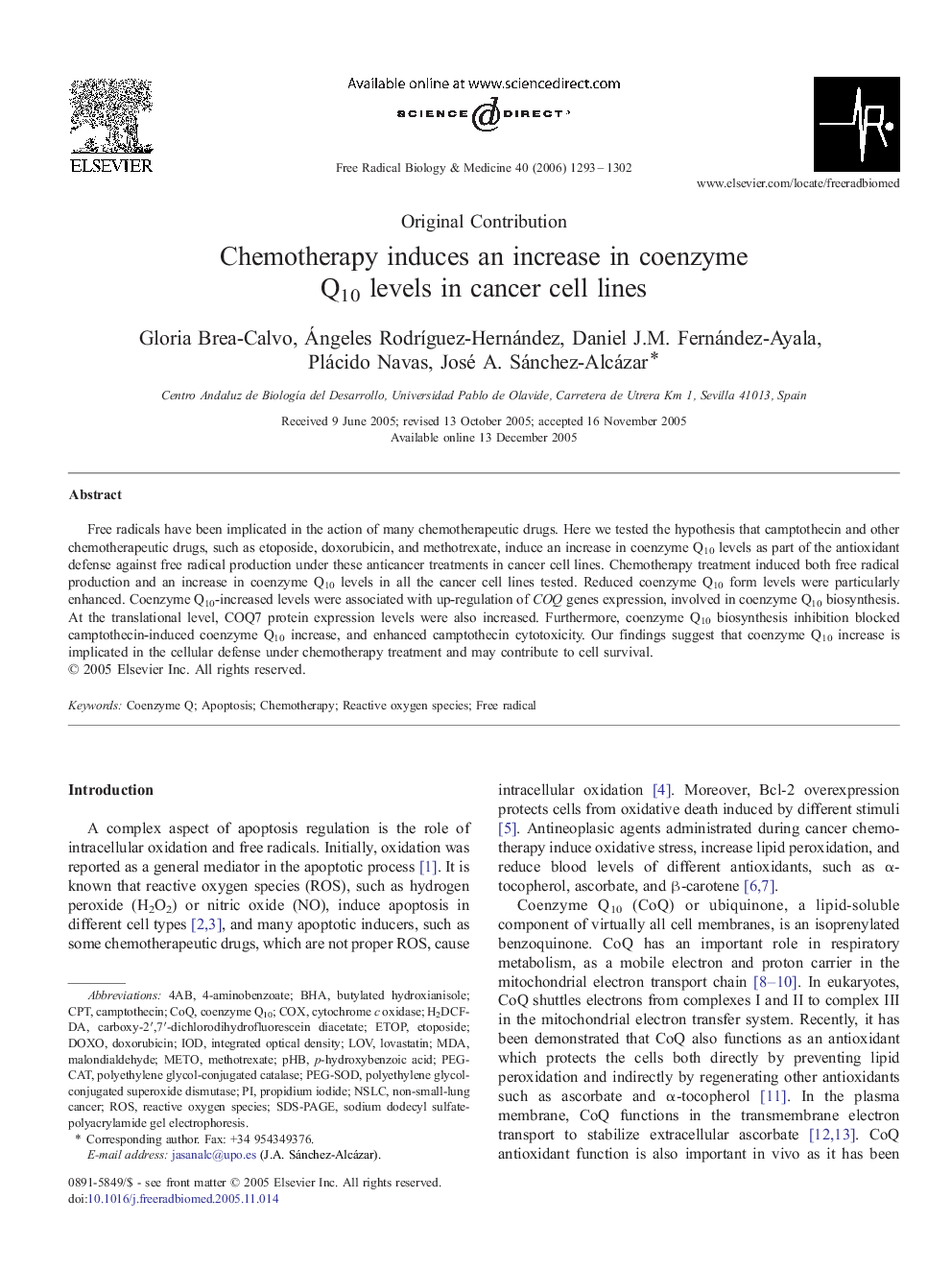| Article ID | Journal | Published Year | Pages | File Type |
|---|---|---|---|---|
| 1911576 | Free Radical Biology and Medicine | 2006 | 10 Pages |
Free radicals have been implicated in the action of many chemotherapeutic drugs. Here we tested the hypothesis that camptothecin and other chemotherapeutic drugs, such as etoposide, doxorubicin, and methotrexate, induce an increase in coenzyme Q10 levels as part of the antioxidant defense against free radical production under these anticancer treatments in cancer cell lines. Chemotherapy treatment induced both free radical production and an increase in coenzyme Q10 levels in all the cancer cell lines tested. Reduced coenzyme Q10 form levels were particularly enhanced. Coenzyme Q10-increased levels were associated with up-regulation of COQ genes expression, involved in coenzyme Q10 biosynthesis. At the translational level, COQ7 protein expression levels were also increased. Furthermore, coenzyme Q10 biosynthesis inhibition blocked camptothecin-induced coenzyme Q10 increase, and enhanced camptothecin cytotoxicity. Our findings suggest that coenzyme Q10 increase is implicated in the cellular defense under chemotherapy treatment and may contribute to cell survival.
